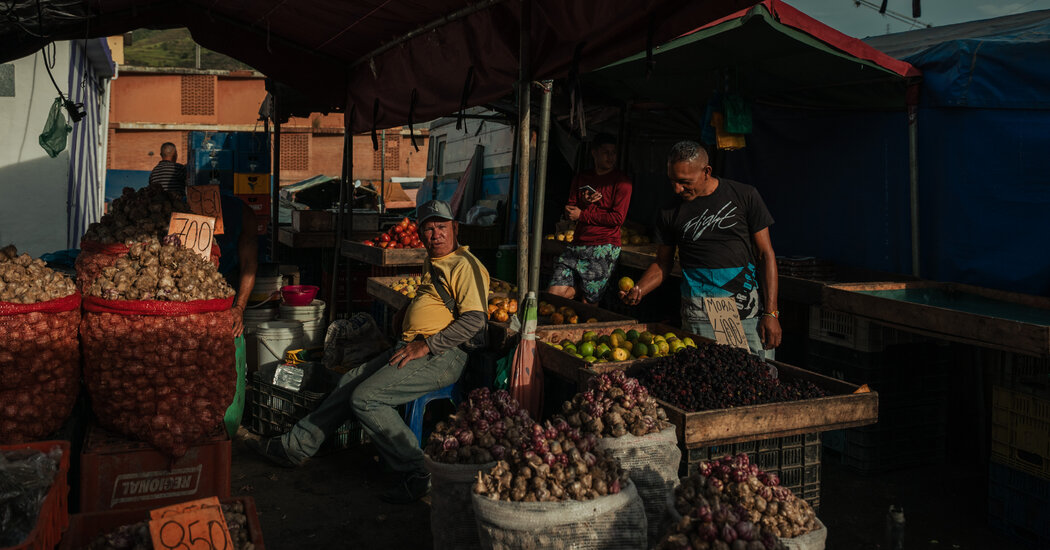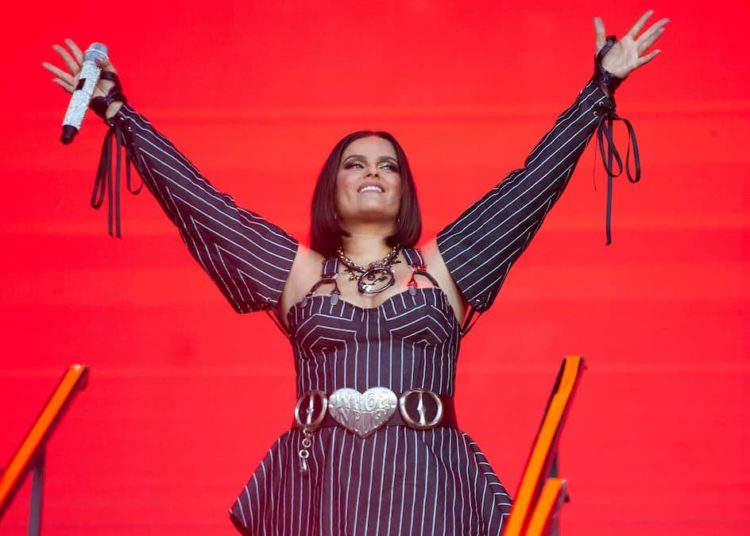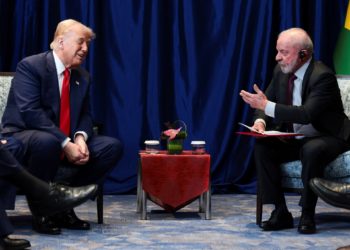The United States’ pressure campaign against President Nicolás Maduro of Venezuela is extinguishing the country’s short-lived economic recovery, leading many inside Venezuela to brace for another economic crisis.
The tightening of American sanctions this year has pushed inflation back into triple digits, sent the national currency into a free fall, worsened power cuts and led the government, companies and residents to hoard dollars and slash spending.
To Venezuelans across the political spectrum, the growing signs of an economic downturn revive memories of hardships that many had hoped they had left behind.
In the past decade, Venezuela went through the deepest recession of any modern nation outside a war zone. A combination of disastrous economic policies, corruption and U.S. sanctions created prolonged hyperinflation, collapsed basic services, increased malnutrition and led millions to migrate to escape extreme poverty.
Mr. Maduro responded with a combination of political repression and a free-market economic overhaul. Those moves have stabilized prices, fueled growth and made life more bearable for most Venezuelans, at the expense of eliminating the last remaining democratic rights.
The Trump administration’s decision in July to designate Mr. Maduro’s government a drug cartel and initiate a series of military and economic measures aimed ostensibly at halting the flow of drugs from Venezuela are reversing these economic gains.
Economists estimate that Venezuela’s annual inflation rate will increase to 600 percent from 50 percent this year, and prices could begin rising exponentially, a scenario known as hyperinflation, in 2026. The country will enter a recession next year with its economy predicted to shrink 3 percent, according to the International Monetary Fund.
Venezuela’s main opposition movement and its allies in the Trump administration are betting that an economic crisis, combined with the aggressive U.S. military campaign in the Caribbean, will fracture the Venezuelan government and end 25 years of a regime now led by Mr. Maduro.
They see worsening living conditions in Venezuela as an unavoidable and short-term cost of re-establishing democracy.
But most Venezuelan economists and businessmen interviewed for this article in Caracas argue that Mr. Maduro is much better prepared for this round of external pressure. They spoke and shared data on the condition of anonymity to protect themselves from Venezuela’ government and potential U.S. sanctions.
Shortly after President Trump won re-election, Venezuela’s government authorized the country’s first cryptocurrency exchanges, paving the way for a broader shift toward financial assets that are outside the scope of traditional sanctions enforcement.
Venezuela today sells the bulk of its oil to China, gets paid in crypto and then funnels some of those revenues back into the national economy through the designated crypto exchanges. These moves have in a matter of months turned Venezuela into arguably the first nation to manage a large share of its public finances in crypto.
At the same time, Mr. Maduro’s vice president and economic czarina, Delcy Rodríguez, is privatizing Venezuela’s natural resources to bolster export revenues, including handing over dozens of small languishing oil fields to private investors.
This has helped oil output to grow 12 percent this year, raising Venezuela’s foreign currency earnings.
Such signs of resilience have led some economists and businessmen to argue that Mr. Maduro could prevent the looming recession from turning into collapse. Other experts point out that he has a track record of weathering financial crises.
“If there’s a country that proves that if you collapse its economy, it doesn’t change its government, it is Venezuela,” said Francisco Rodríguez, a Venezuelan economist who studies sanctions at the University of Denver. “When the country becomes poorer, the government doesn’t become weaker.”
Venezuela’s current economic troubles began with the Trump administration’s decision to change the rules that govern Western oil companies’ operations in Venezuela.
The largest private oil producer in Venezuela, U.S.-based Chevron, until March sold crude oil from its Venezuelan projects to the United States and handed over Venezuela’s share of the proceeds to local private banks in dollars. Those banks then distributed those dollars to corporate clients, allowing them to to pay for imports and drive economic growth.
Last year, Chevron funneled nearly $2.4 billion into the Venezuelan economy, about a third of the country’s entire hard currency supply that year.
The Trump administration’s revision of Chevron’s permit ended those currency injections.
Starting in August, Chevron had to hand over half of its Venezuelan output to the state oil company, known as P.D.V.S.A., in physical oil. This oil added to the bulk of Venezuelan crude exports that P.D.V.S.A. was already selling to China under similar payment schemes.
Chevron’s new operating rules have reduced the profitability of Venezuelan oil exports because P.D.V.S.A. must offer discounts and pay middlemen to skirt sanctions. But these new rules also give Mr. Maduro greater control over the economy by tightening his grip on the reduced amount of hard currency still entering the country.
Faced with the military threat from the United States, Ms. Rodríguez’s economic team decided to sacrifice growth and build financial buffers. They cut public spending and drastically reduced the share of reserves they spent defending the official exchange rate of the bolívar, the national currency.
Instead, the government tried protecting the currency through repression. The government has jailed at least eight economists for publishing negative data, it has arrested dozens of others for publicizing the black market exchange rate and it has raided shops and restaurant to ensure they sell products at the official rate. Still, the bolívar has kept falling.
Yet, even as the government cracked down on the currency black market, it was quietly becoming its dominant player. This year, the government started funneling part of its oil revenues into the economy through the two authorized crypto exchanges, which are allowed to trade bolívares at a weaker exchange rate.
This legal loophole has allowed the government to keep economic activity going, at the cost of increasing the inflation rate.
Dollars denominated in crypto tokens now account for up to half of the hard currency that enters the Venezuelan economy legally. Each of these tokens equals the value of a U.S. dollar, a type of cryptocurrency known as stablecoins.
The government’s crypto injections have quickly trickled down. P.D.V.S.A. now pays some contractors in stablecoins, private firms pay bonuses in stablecoins and citizens, from motorbike taxi drivers to executives, trade bolívares for stablecoins on Binance, the world’s largest crypto exchange.
These developments have made Venezuelan economy even more opaque, and the different exchange rates, experts say, create opportunities for corruption.
A representative for Tether, the most popular stablecoin used in Venezuela, declined to comment. Tether has previously extolled its cooperation with law enforcement to counter accusations of enabling money laundering and organized crime.
Crypto experts say Tether has the technical ability to trace and freeze its tokens, highlighting the risks of the Venezuelan government’s conversion to crypto.
Binance, the most popular crypto trading platform in Venezuela, had already come into American prosecutors’ cross hairs. The company’s founder Changpeng Zhao had pleaded guilty to money-laundering violations in 2023 and served four months in prison. Mr. Trump pardoned him on Thursday.
A Binance spokesman said the company was “committed to complying with all applicable U.S. sanctions.”
The switch to crypto has so far allowed the Venezuelan government to manage the downturn, but experts say economic conditions are likely to deteriorate significantly next year.
The gap between the bolívar’s official and black market exchange rates now stands at about 50 percent, putting pressure on the government to close the gap or risk hyperinflation.
Weakening the official rate, a policy known as devaluation, carries political risks. It would eviscerate the purchasing power of Venezuelan workers, particularly the public employees and military servicemen crucial to Mr. Maduro’s power.
Mr. Maduro now faces the choice of taking that risk or returning to price and currency controls that have deepened the country’s previous depression, said Mr. Rodríguez, the economist.
David Yaffe-Bellany contributed reporting from New York.
Anatoly Kurmanaev covers Russia and its transformation following the invasion of Ukraine.
The post How Venezuela’s Autocrat Uses Crypto to Fight Trump’s Sanctions appeared first on New York Times.




